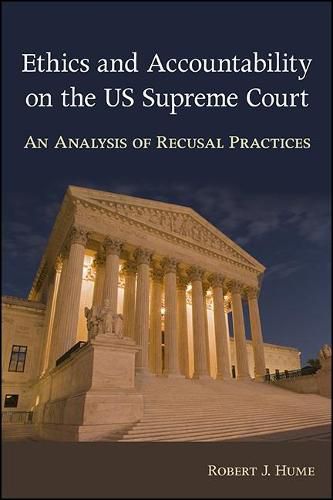Readings Newsletter
Become a Readings Member to make your shopping experience even easier.
Sign in or sign up for free!
You’re not far away from qualifying for FREE standard shipping within Australia
You’ve qualified for FREE standard shipping within Australia
The cart is loading…






Do US Supreme Court justices withdraw from cases when they are supposed to? What happens when the Court is down a member? In Ethics and Accountability on the US Supreme Court, Robert J. Hume provides the first comprehensive examination of the causes and consequences of recusal behavior on the Supreme Court. Using original data, and with rich attention to historical detail including media commentary about recusals, he systematically analyzes the factors that influence Supreme Court recusal, a process which has so far been shrouded in secrecy. It is revealed that justices do not strictly follow the recusal guidelines set by Congress, but at the same time they do not ignore these rules. Overall, justices are selective in their compliance with the recusal statute, balancing ethical considerations against other institutional and policy goals, such as the duty to sit. However, the book also concludes that the impact of recusals on policymaking is more limited than commentators have claimed, raising questions about whether ethics reform is really needed at this time.
$9.00 standard shipping within Australia
FREE standard shipping within Australia for orders over $100.00
Express & International shipping calculated at checkout
Do US Supreme Court justices withdraw from cases when they are supposed to? What happens when the Court is down a member? In Ethics and Accountability on the US Supreme Court, Robert J. Hume provides the first comprehensive examination of the causes and consequences of recusal behavior on the Supreme Court. Using original data, and with rich attention to historical detail including media commentary about recusals, he systematically analyzes the factors that influence Supreme Court recusal, a process which has so far been shrouded in secrecy. It is revealed that justices do not strictly follow the recusal guidelines set by Congress, but at the same time they do not ignore these rules. Overall, justices are selective in their compliance with the recusal statute, balancing ethical considerations against other institutional and policy goals, such as the duty to sit. However, the book also concludes that the impact of recusals on policymaking is more limited than commentators have claimed, raising questions about whether ethics reform is really needed at this time.